' The Ministry of Finance has sometimes not been timely in reducing taxes, fees, and charges for businesses, and has been too cautious, not daring to surpass itself. For example, the 2% VAT exemption has been done six times since the Covid-19 pandemic, but it is still cautious,' said Prime Minister Pham Minh Chinh.
Vietnam is a 'bright spot' of the world
Prime Minister Pham Minh Chinh attended and delivered a speech at the Conference to review the State financial and budget work in 2024 and deploy tasks for 2025, organized by the Ministry of Finance on the afternoon of December 31 in Hanoi .
The Prime Minister acknowledged, commended and highly appreciated the efforts of the entire Finance sector contributing to the overall achievements of the country.
In the context of the world situation with many uncertainties, Vietnam still maintains macroeconomic stability, controls inflation, growth in each quarter is higher than the previous quarter, inflation in each month is lower than the previous month.
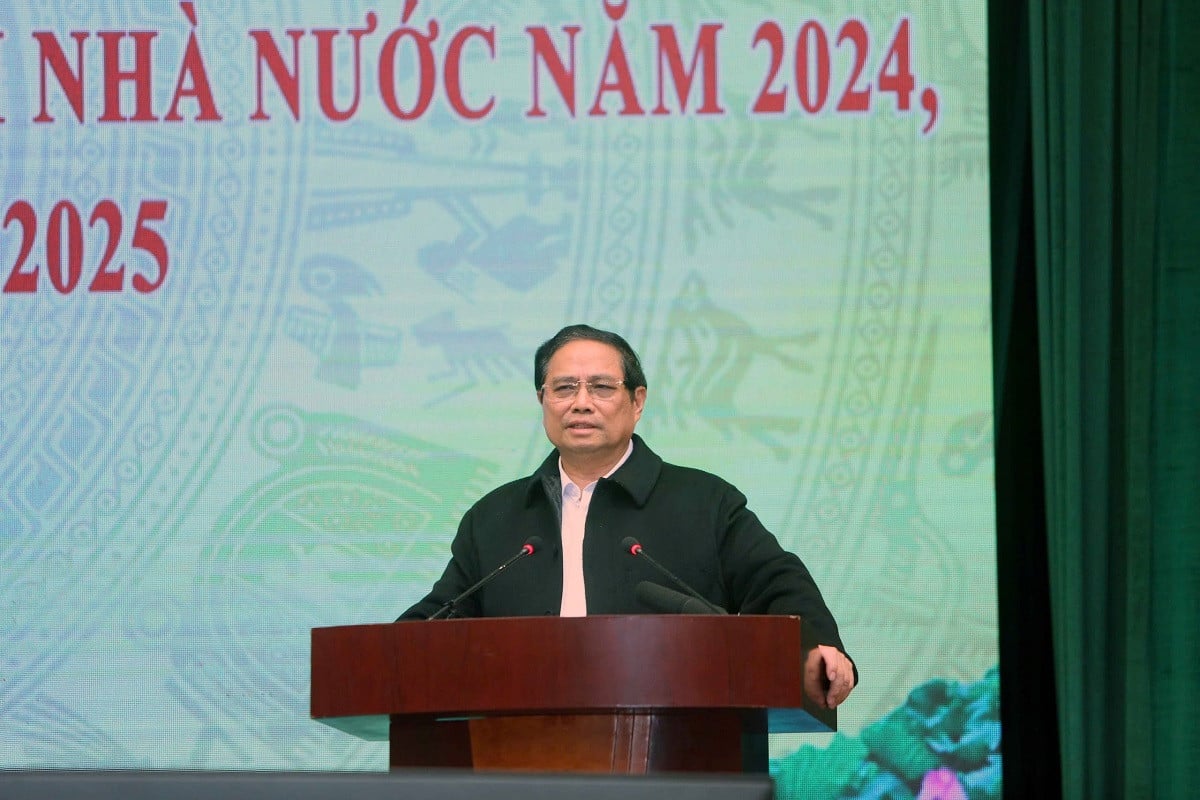
Vietnam is one of the "bright spots" in the world in terms of social security. Poverty reduction rate is high. 38 years ago, when the renovation was implemented, 67% of the country's population was poor, only over 30% had average income or higher, this year it is only 1.9%. Typhoon Yagi passed through many countries, Vietnam was one of the countries that suffered the greatest consequences but also overcame the consequences best, and was highly appreciated by the leaders of other countries.
Vietnam continues to be an attractive and safe destination for foreign investors, being listed among the 20 economies with the largest trade scale in the world.
To achieve the above outstanding results, we must mention the contribution of the Finance sector.
Over the past year, the Finance sector has advised and implemented tax and fee reductions and exemptions of nearly VND200 trillion, removing difficulties for businesses and people. Public debt, government debt, and foreign debt have been controlled within limits, much lower than the levels assigned by the National Assembly and the Government.
More efforts needed to address 'bottlenecks'
The Prime Minister also frankly pointed out a number of issues that the Finance sector needs to make more efforts in the coming time.
Notably, there is still a group of cadres who avoid, fear mistakes, fear shortcomings. This story has been talked about a lot in the past 2 years but not much has been done to fix it.
The Prime Minister noted that fiscal and monetary policies must be very quick and sensitive. However, the reduction of taxes, fees, and charges for businesses by the Ministry of Finance in recent times has sometimes been untimely, too cautious, and has not dared to surpass itself.
"For example, the 2% VAT exemption is done one at a time, and each time it is very difficult. Since the Covid-19 pandemic, it has been done 6 times, and each time it is reviewed and re-reviewed, but it is still cautious. This year, it must be done for a whole year. We must learn from experience. Whatever we do, we must choose the most effective thing to do. Last year, we still reduced taxes, fees, and charges by nearly 200 trillion VND but the revenue exceeded 300 trillion VND? The same thing happened in other years, and the budget revenue has exceeded for 3 years. Why do we have to be so hesitant?", the Prime Minister raised the issue.
The disbursement of public investment capital and national target programs is still slow and has not changed much. The biggest "bottleneck" is still the institution, many unnecessary and roundabout procedures, including negativity and corruption. Prolonged projects will cause capital increase and waste. There must be stronger decentralization and delegation of power. The spirit is that localities decide - localities do - localities take responsibility.
The phenomenon of 'blue and red army' bidding is very complicated, like a "boil", if you want it to be healthy, you have to be bold and cut it out. Transparent and public bidding, without "blue and red army" is welcome, but the procedure must be quick, not "soaked shrimp" forever.
On the other hand, there is still loss and waste in the use of public assets. The Prime Minister set a deadline of December 25 to report on wasteful projects, but it was only yesterday that the Ministry of Public Security reported. It is necessary to dissect and find the reasons why the projects are unfinished; there must be a cause and a responsible person. The Ministry of Finance needs to study and amend the Decree on public asset management to remove "bottlenecks" for many important policies, such as public-private partnerships to build airports.
In addition, the Prime Minister recommended strengthening the responsibility of the board of directors and board of members of state-owned enterprises. Public assets and public finance of the state-owned enterprise sector are over 4 quadrillion VND. State capital must be invested in development, but in reality, not much has been invested. We need to ask why?
Three lessons learned
Emphasizing the role and significance of the organizational restructuring revolution, in which the Ministry of Finance will merge with the Ministry of Planning and Investment, the Prime Minister suggested: "The Party has directed, the Government has agreed, the National Assembly has agreed, the people support, and the Fatherland expects. Only discuss action, not retreat. The ideology must be clear, must be unified internally, must be highly determined, and each task must be completed. There is only one head, but the deputy ministers will remain the same, accepting the transition period. We must choose people with passion, responsibility, and capacity in the state sector. In the process of restructuring, we encourage sacrifice and tolerance to work together, enjoy together, and develop together."
The Prime Minister requested the reorganization of tax, customs, and treasury agencies to ensure streamlined, effective, efficient, and productive operations. It is known that in 2024, these agencies have reduced 679 staff compared to 2023, including retirees.
The head of government drew some lessons from experience.
First of all, we must be united, unanimous, unanimous, clear-headed, peaceful inside and out, supportive in front and behind, respond promptly to all, and focus on mobilizing all financial resources for national development.
Second, we must have breakthrough thinking, strategic vision, think deeply and act big, combine words with actions, dare to think, dare to do, dare to take responsibility, dare to innovate, and create space for social resources to focus on developing the country.
"We should not be too safe. Currently, many officials do not dare to surpass themselves. Only by overcoming their own limits in performing public duties can we be highly effective and turn the impossible into possible," the Prime Minister emphasized.
Third, it is necessary to strengthen decentralization and improve the implementation capacity of subordinates; resolutely eliminate the mechanism of begging and cumbersome procedures, and resolutely fight against corruption and negative practices in the financial sector.
The Prime Minister said that in 2025, many localities set a target of double-digit growth, and the whole country strives to grow at least 8%. This will create the premise and foundation to promote double-digit growth in the next term, creating the country's rise in the new era to become a rich, powerful, civilized, modern, and prosperous nation.
By 2025, the Finance sector will reduce over 2,650 units, equivalent to 31.4%.
Minister of Finance Nguyen Van Thang said that one of the key tasks in 2025 is to effectively carry out the work of restructuring and streamlining the apparatus according to the conclusions of the Central Steering Committee and the Steering Committee of the Government and the Prime Minister, promptly put the new apparatus into operation to ensure streamlining, effective and efficient operation, the number of focal points reduced by about 31.4%, not maintaining the general department model; building a team of civil servants in the finance sector to meet the requirements of the tasks in the new situation, daring to think, daring to do, daring to take responsibility.
Source: https://vietnamnet.vn/phai-nghi-sau-lam-lon-vuot-qua-su-an-toan-cua-ban-than-2358828.html


![[Photo] Keep your warehouse safe in all situations](https://vphoto.vietnam.vn/thumb/1200x675/vietnam/resource/IMAGE/2025/10/1/3eb4eceafe68497989865e7faa4e4d0e)



![[Photo] Hanoi morning of October 1: Prolonged flooding, people wade to work](https://vphoto.vietnam.vn/thumb/1200x675/vietnam/resource/IMAGE/2025/10/1/189be28938e3493fa26b2938efa2059e)
![[Photo] President of the Cuban National Assembly visits President Ho Chi Minh's Mausoleum](https://vphoto.vietnam.vn/thumb/1200x675/vietnam/resource/IMAGE/2025/10/1/39f1142310fc4dae9e3de4fcc9ac2ed0)


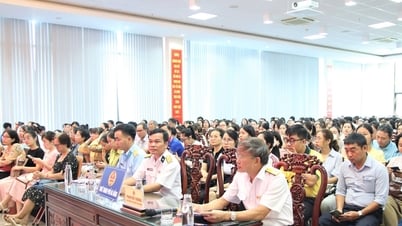



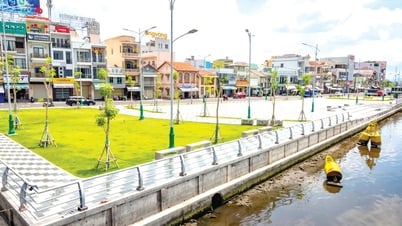



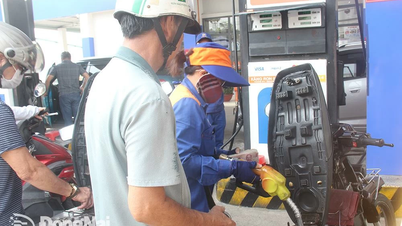


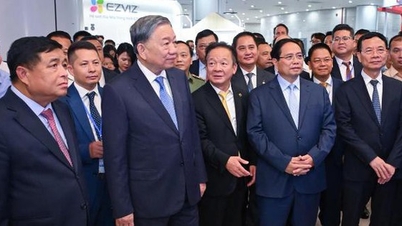



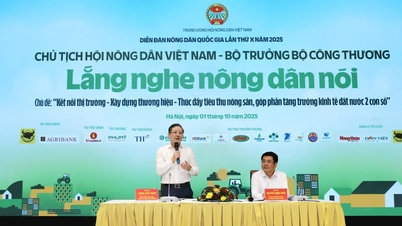










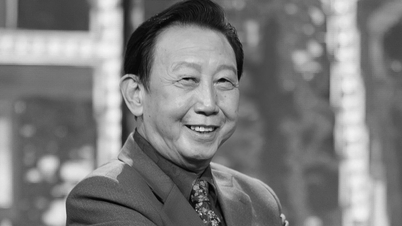















































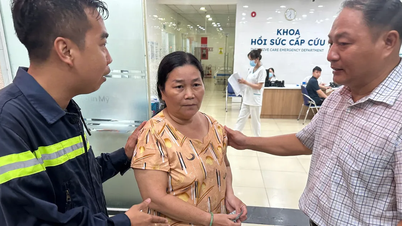


















Comment (0)